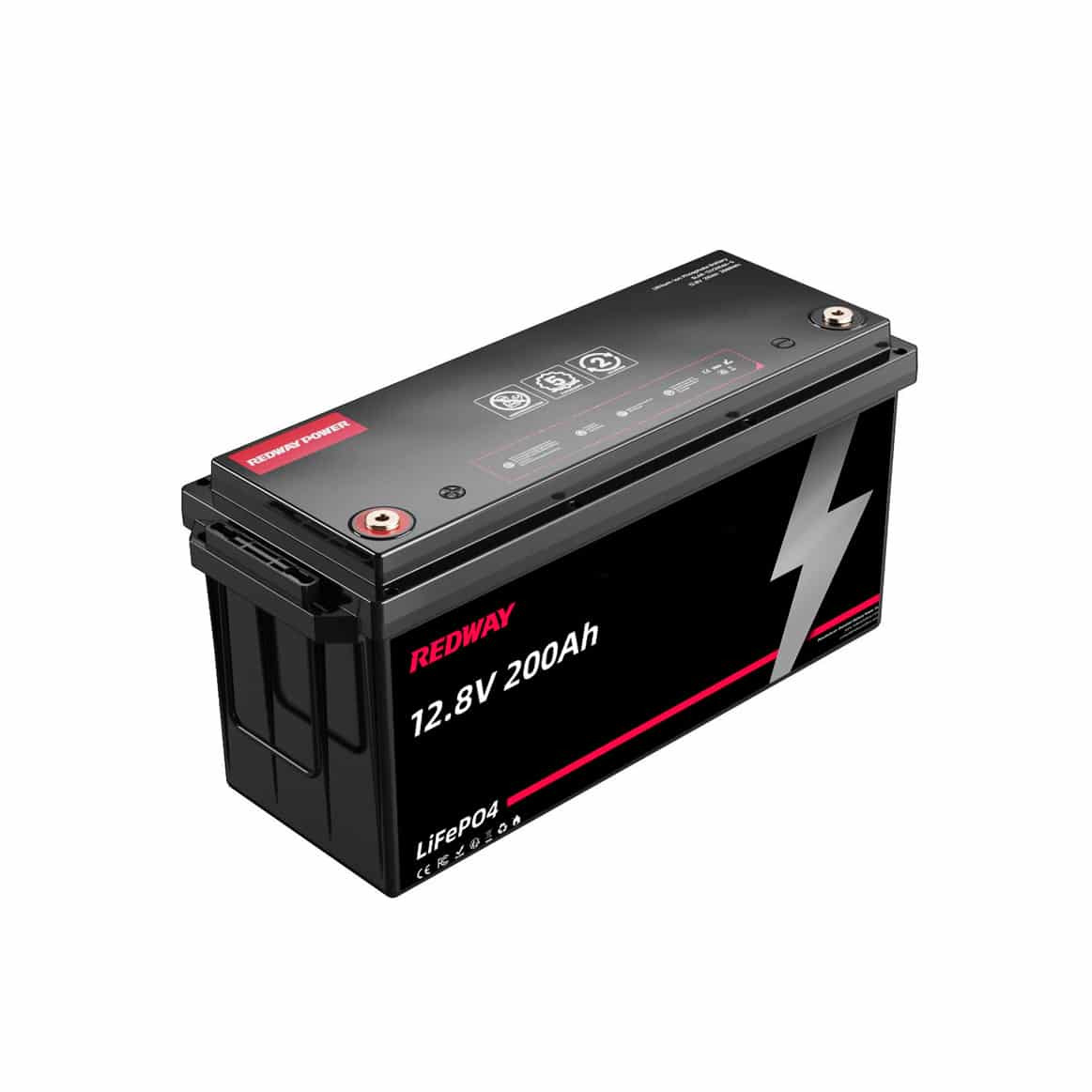In today's world of portable power solutions, the 12V 200Ah LiFePO4 battery stands out as a reliable and efficient energy storage option. Whether you're powering an off-grid cabin, a recreational vehicle, or a solar energy system, this advanced lithium iron phosphate battery offers unparalleled performance and longevity.

Understanding LiFePO4 Battery Technology
What is LiFePO4?
LiFePO4, or lithium iron phosphate, is a type of lithium-ion battery known for its high energy density, long cycle life, and enhanced safety features. Unlike traditional lead-acid batteries, LiFePO4 batteries utilize lithium ions to store and release energy, resulting in a more efficient and lightweight power solution.
Advantages over other battery chemistries
Compared to other lithium-ion chemistries such as lithium cobalt oxide (LiCoO2) or lithium manganese oxide (LiMn2O4), LiFePO4 batteries offer several key advantages. These include:
- Enhanced safety: LiFePO4 batteries are less prone to thermal runaway and are more stable under high temperatures.
- Longer lifespan: With thousands of charge-discharge cycles, LiFePO4 batteries outlast traditional lead-acid batteries by a significant margin.
- Higher energy density: LiFePO4 batteries provide more power in a smaller and lighter package, making them ideal for mobile applications.
Specifications of 12V 200Ah LiFePO4 Battery
Voltage and capacity
The 12V 200Ah LiFePO4 battery delivers a nominal voltage of 12 volts and a capacity of 200 ampere-hours (Ah). This ample capacity ensures reliable power delivery for extended periods, even in demanding applications.
Size and weight
Despite its impressive capacity, the 12V 200Ah LiFePO4 battery remains compact and lightweight compared to lead-acid alternatives. This makes it easier to install and transport, especially in mobile or off-grid setups.
Charging and discharging rates
LiFePO4 batteries are known for their fast charging capabilities and high discharge rates. The 12V 200Ah variant can be charged rapidly using compatible chargers and can deliver power efficiently to various loads.
Applications of 12V 200Ah LiFePO4 Battery
Solar energy storage
One of the most popular applications for LiFePO4 batteries is solar energy storage. Whether used in grid-tied or off-grid solar systems, these batteries store excess energy generated during the day for use during periods of low sunlight or high demand.
Marine and RV power systems
In marine and RV applications, where space and weight are at a premium, LiFePO4 batteries offer a compelling solution. Their lightweight design and high energy density make them ideal for powering onboard electronics, appliances, and propulsion systems.
Off-grid living solutions
For off-grid homes and cabins, reliable power is essential for maintaining comfort and convenience. The 12V 200Ah LiFePO4 battery provides a sustainable energy storage solution that can power lights, appliances, and communication devices without the need for grid connectivity.
Benefits of Using LiFePO4 Batteries
Long lifespan
LiFePO4 batteries are renowned for their long cycle life, often exceeding 2000 charge-discharge cycles. This longevity translates to years of reliable performance and minimal maintenance requirements.
High energy density
Despite their compact size, LiFePO4 batteries offer high energy density, allowing them to store more power in less space. This makes them ideal for applications where size and weight are critical considerations.
Safety features
Unlike some other lithium-ion chemistries, LiFePO4 batteries are inherently safer thanks to their stable chemical composition. They are less prone to thermal runaway, overcharging, and short circuits, reducing the risk of fire or explosion.
Comparison with Lead-Acid Batteries
Performance
Compared to lead-acid batteries, LiFePO4 batteries offer superior performance in terms of energy density, cycle life, and efficiency. They can deliver more power in less time, making them ideal for high-demand applications.
Lifespan
While lead-acid batteries typically last between 300 to 700 cycles, LiFePO4 batteries can exceed 2000 cycles with proper care and maintenance. This extended lifespan translates to lower total cost of ownership over the battery's lifetime.
Environmental impact
Lead-acid batteries pose significant environmental hazards due to their toxic materials and high recycling costs. In contrast, LiFePO4 batteries are more environmentally friendly, with fewer toxic components and easier recycling processes.
Factors to Consider When Choosing a LiFePO4 Battery
Price
While LiFePO4 batteries may have a higher upfront cost compared to lead-acid alternatives, their long-term value and performance justify the investment. Consider the total cost of ownership, including maintenance and replacement expenses, when evaluating pricing.
Brand reputation
Choose reputable manufacturers and suppliers when purchasing LiFePO4 batteries to ensure quality and reliability. Research customer reviews and industry certifications to gauge the reputation of different brands.
Warranty and customer support
Look for batteries that come with a comprehensive warranty and responsive customer support. This provides peace of mind knowing that you'll receive assistance in case of any issues or concerns with your battery.
Installation and Maintenance Tips
Proper charging procedures
Follow manufacturer guidelines for charging your LiFePO4 battery to ensure optimal performance and longevity. Avoid overcharging or undercharging, as this can reduce the battery's lifespan and efficiency.
Storage considerations
Store LiFePO4 batteries in a cool, dry place away from direct sunlight and extreme temperatures. Avoid storing them in a discharged state for extended periods, as this can lead to capacity loss and irreversible damage.
Monitoring battery health
Regularly monitor the state of charge and voltage of your LiFePO4 battery to ensure it remains in good condition. Use compatible battery monitoring systems and perform routine maintenance as recommended by the manufacturer.
Real-world Performance and User Experiences
Customer reviews and testimonials
Many users praise the performance and reliability of LiFePO4 batteries in real-world applications. From off-grid homesteads to mobile power systems, these batteries consistently deliver efficient and consistent power when needed most.
Case studies
Numerous case studies highlight the benefits of using LiFePO4 batteries in various industries and environments. From reducing energy costs to improving system reliability, these batteries offer tangible benefits for businesses and consumers alike.
Future Trends in LiFePO4 Battery Technology
Research and development
Ongoing research and development efforts aim to further improve the performance and efficiency of LiFePO4 batteries. Innovations in electrode materials, manufacturing processes, and battery management systems promise even greater advancements in the future.
Potential advancements
Future advancements in LiFePO4 battery technology may include higher energy densities, faster charging rates, and enhanced safety features. These developments could further expand the range of applications and accelerate the adoption of this promising energy storage solution.
Environmental Impact of LiFePO4 Batteries
Recycling initiatives
As awareness of environmental issues grows, so does the focus on recycling and sustainability in battery manufacturing. Many companies are investing in recycling initiatives to recover valuable materials from end-of-life LiFePO4 batteries and reduce their environmental footprint.
Sustainable manufacturing practices
Manufacturers are increasingly adopting sustainable practices such as energy-efficient production methods and responsible sourcing of raw materials. These efforts aim to minimize the environmental impact of LiFePO4 battery manufacturing and promote a more sustainable energy future.
Conclusion
The 12V 200Ah LiFePO4 battery represents a cutting-edge solution for reliable and efficient energy storage. With its advanced technology, long lifespan, and eco-friendly design, it's no wonder why more consumers and businesses are turning to LiFePO4 batteries for their power needs.
FAQs
How long does a 12V 200Ah LiFePO4 battery last?
With proper care and maintenance, a LiFePO4 battery can last over 10 years or 2000 charge-discharge cycles.
Can I use a LiFePO4 battery in cold climates?
LiFePO4 batteries perform well in a wide range of temperatures, including cold climates. However, extreme cold may affect their performance temporarily.
Is it safe to charge a LiFePO4 battery indoors?
Yes, LiFePO4 batteries are safe to charge indoors due to their stable chemistry and built-in safety features.
Can I connect multiple LiFePO4 batteries in parallel?
Yes, you can connect multiple LiFePO4 batteries in parallel to increase capacity or power output. However, ensure proper balancing and monitoring to prevent overcharging or imbalance.
What is the typical warranty period for these batteries?
Warranty periods vary by manufacturer but typically range from 3 to 5 years, covering defects in materials and workmanship.
